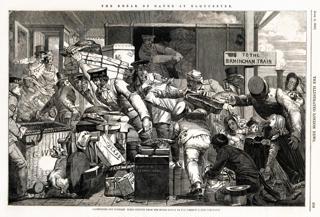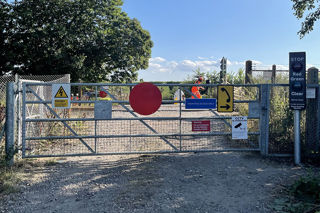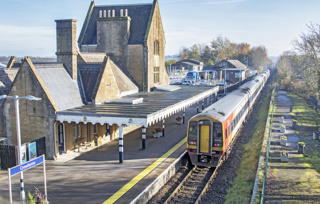Against a £2.4bn annual shortfall, ticket pricing will need to change, says our Industry Insider.
Quarterly statistics for passenger rail usage for the period between April 1 and June 30 this year, published by the Office of Rail and Road at the beginning of October, reveal that the revenue outturn is running at 84% of pre-COVID receipts.
Against a £2.4bn annual shortfall, ticket pricing will need to change, says our Industry Insider.
Quarterly statistics for passenger rail usage for the period between April 1 and June 30 this year, published by the Office of Rail and Road at the beginning of October, reveal that the revenue outturn is running at 84% of pre-COVID receipts.
Five years ago, income for the corresponding quarter was £3.4 billion (when updated to reflect current day value), compared with the £2.8bn paid by rail users this year. On an annualised basis, that amounts to a shortfall of £2.4bn.
With escalating operating costs, as a result of recent pay awards and other inflationary impacts on working expenses, Treasury funding for revenue support is on a rising trend that shows no sign of abating.
The statistics make grim reading for the shadow Great British Railways organisation that is emerging, as legislation is brought into law to establish the undertaking and its legal powers.
The appointment of its chair has been made - Laura Shoaf, who is currently Chief Executive of the West Midlands Combined Authority and formerly Managing Director of Transport for the West Midlands.
A transition team has been in place for some time, with leaders of Network Rail, the Department for Transport’s Rail Services Group, and the Operator of Last Resort team reviewing future organisational structures that will now be at the top of the agenda for the new chair.
It is a surprise that the appointment will not roll over to GBR once it is established. There is to be a separate recruitment exercise to fill the role, which is not the continuity that is needed to successfully merge the organisations involved and the interests they represent.
At least after past nationalisation and the creation of the British Transport Commission and its Railway Executive at the start of 1948, there was not an immediate need to address a financial deficit, which did not emerge until the mid 1950s when a Modernisation Plan was intended to eliminate losses.
As we know, this was unsuccessful, and in response the British Railways Board was created in 1963 with a remit to eliminate loss-making services.
The railway deficit of the 1950s had very different characteristics to that faced today. Better roads, heavier lorries, and private car ownership had created competition with a railway product that had seen little innovation and thus brought falling demand.
That is in contrast to the present day, where demand for passenger travel has more than doubled since privatisation, with a recovery that has seen passenger numbers reach 96% of the pre-COVID level and an expectation that usage will continue to grow. In addition, there are ambitious plans to ensure more freight travels by rail.
The challenge that has emerged since the pandemic is that passengers are paying lower fares, as a result of the flexibility created by the ability to work from home.
In the quarterly period to the end of June this year, journeys using season tickets fell to 12%, continuing a steady decline from a share of 33% five years ago.
Instead, travel using discounted Off-Peak tickets made up 48% of purchases, a growth of 9% based on a year-on-year comparison.
This is a major market shift away from season ticket travel which, although discounted, is based on what might be called full fares. This is only competitive if more than three journeys a week are made, which worked in the past for most office-based employment.
Although employers are pressing staff to attend the office more often, there is often flexibility in the attendance time, which means that cheaper off-peak fares can be purchased.
This trend has resulted in a current revenue per journey figure of £6.61 for the formerly franchised operators, compared with £6.53 the previous year. While this represents a 1% increase, fares went up by 4.9% over the previous year, so an average £6.85 might have been expected if the inelastic demand characteristics were still evident.
Changing travel patterns do not necessarily mean a transfer to alternative modes such as the private car, but rather the option of not making the journey at all, given digital connectivity.
Despite this, journey numbers are increasing, with 420 million recorded in the three months to the end of June - 7% above the comparable figure of 392 million a year ago.
However, there is a view that the success of the Elizabeth line in London, which has attracted 16% more passengers to reach 59 million journeys in the quarter, has gained new users that disguises poor growth elsewhere.
Below-average increases were recorded by a number of operators, including LNER and Great Western Railway. This suggests that as well as a loss of commuters, the demand for business travel has also reduced as a result of meetings being held remotely, with less need to travel.
To counter the evident demand pattern, some big changes are needed to ticket pricing. The availability of Off-Peak and Saver tickets at times when demand is now higher has been addressed by LNER - for services where passenger numbers are likely to exceed service capacity, advance purchase tickets are being priced above previous saver fares, which have been withdrawn.
There is nothing illogical about this use of market pricing (to use a softer term than charging what the market will bear). In the future, it can be expected that fares will be higher for travel at peak times which relate to specific events, rather than the time of day.
Changes of this nature will not always be understood by individual customers. Many will be appalled that someone using a Young Persons Railcard at the wrong time, that was not flagged when making a digital purchase, can be issued with a notice of prosecution by Northern for an underpayment of £1.90. Such prosecutions can lead to a criminal record that can have dire consequences for future employment.
These practices must stop. Given the complexity of ticket validity, they call into question whether private prosecutions are now appropriate, given a recent judgement by the Chief Magistrate.
After six test cases were reviewed it was declared they all should be considered void. This is to apply to 70,000 prosecutions using the single justice procedure which were considered unlawful, as the process was not intended for use in fare evasion cases as there is insufficient judicial scrutiny.
Login to continue reading
Or register with RAIL to keep up-to-date with the latest news, insight and opinion.



















Login to comment
Comments
No comments have been made yet.